Our checklist of high rated VPN companies makes your life so much simpler by narrowing down the a whole bunch of suppliers on the market and reducing to the chase with a rundown of the elite VPN choices on the market and supplying you with some key info and specs on every VPN listed. We’re perpetually going by way of the method of testing and retesting one of the best (and worst!) VPNs commonly too, so that you will be positive the suggestions on this web page are present and will be trusted.
So when you’re considering of signing up for one and wish to discover out which is one of the best VPN to decide on, we’ll just be sure you set up the precise one and keep away from those that may be doubtlessly be downright harmful.
What’s the best VPN service?
NordVPN picks up our first five/five rating. In terms of absolute point count, it is one point above the other two five point winners. NordVPN is firing on all cylinders, so we deducted only a few points from a perfect score.
They even offer the most generous simultaneous connection count, with six simultaneous connections through their network, where everyone else offers five or fewer. NordVPN’s network isn’t as large as some of their competitors, so if you’re trying to obfuscate your tracks, you might want a company with more servers. Otherwise, this company is clearly providing a winning offering.
Their best plan is 1-year subscription plan: $6.99 ($83.88). While their monthly price of $11.95 is at the high end of the spectrum (and they did lose a few points for that), their yearly price of $83.88 is lower than most our contenders. And yes, they also have a full 30-day refund policy. NordVPN also offers a dedicated IP option, for those looking for a different level of VPN connection. They do offer $3.99/month price ($95.75/2-year) .
2. CyberGhost VPN – 9/10
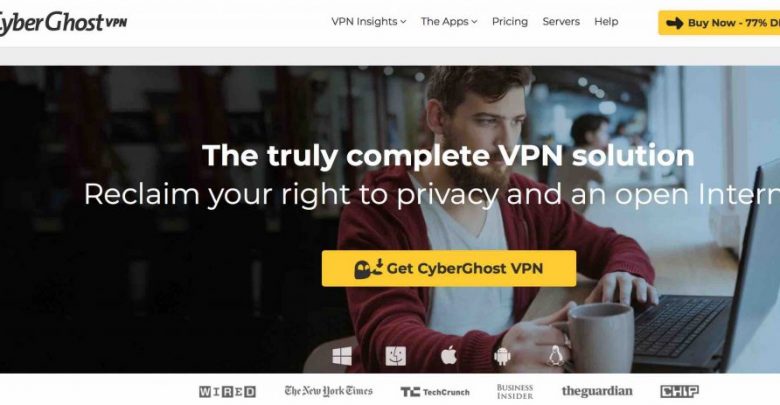
- Number of IP addresses: 2,800
- Number of servers: over 2,800 worldwide.
- Number of server locations: 115
- 24/7 support response.
CyberGhost has been around since 2011 and has come out strongly as a supporter of “civil rights, a free society, and an uncensored Internet culture.” We really liked how the company specifically showcases, on their Web site, how folks normally prevented from accessing such important services as Facebook and YouTube can bring those services into their lives via a VPN.
The company has solid Linux support, supports VPN via routers, and has a solution for the popular Kodi media player. They check off all the boxes on protocol support and pick up points for offering a connection kill switch feature, along with supporting P2P and BitTorrent in most countries.
At $2.75 per month and $33 for a year of service ($2.75 /mo),they are a great option to consider for VPN coverage.
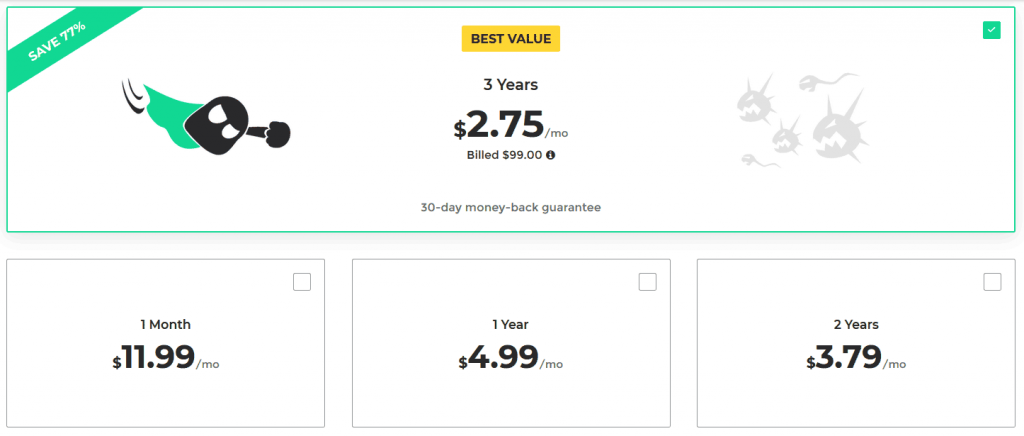
Still, the few extra dollars are worth it. We liked how the company offers custom app protection, IPV5 support and DNS, IP, and WebRTC leak prevention. CyberGhost also picked up points for preserving anonymity by not logging connection data.
3. Private Internet Access (PIA) – 9/10
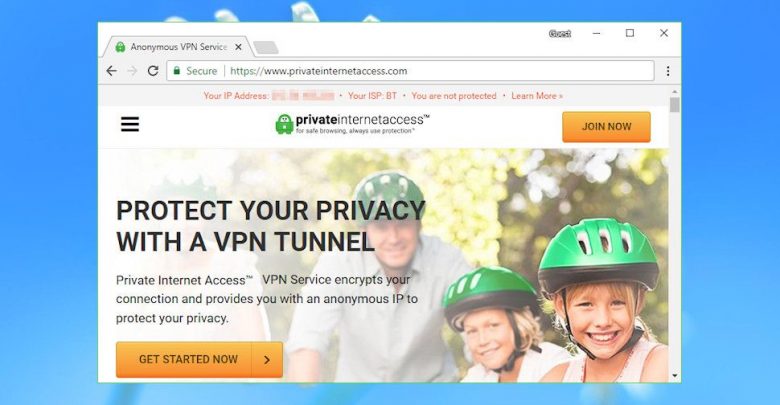
Speaking of price, if you want a 5/5 rated VPN provider and you want the lowest yearly price anywhere, Private Internet Access is the place to go. At $6.95 a month, their monthly fee is the second lowest of our picks, but at $39.95
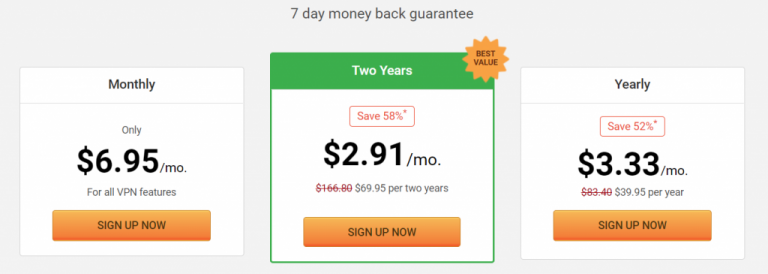
per year, Private Internet Access beats even the second lowest yearly price by a full Jackson (a $20 bill).
The company does not release information on the number of IP addresses available, but at 3,252, their server count is more than any of our other picks.
These folks have been around since 2010, and don’t log anything. They provide a generous five connections, a connection kill switch feature, and some good online documentation and security guidance. Our one disappointment is that their refund policy is 7-days instead of 30, but you can certainly get a feel for their excellent performance in the space of a week.
4. Windscribe VPN – 9/10
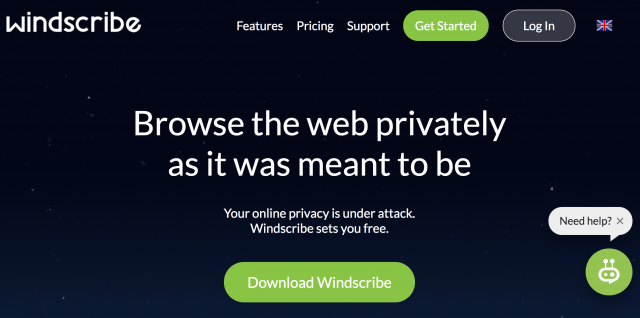
VPN providers shield your web connections from prying eyes, corresponding to these of your web service supplier, lodge employees and even the individual sitting subsequent to you at Starbucks. In addition they may help you watch video streams from faraway lands.
Windscribe was solely a mean performer amongst VPN providers after we first examined it, nevertheless it bought a lot sooner after a change in VPN protocols. It is now one of many quickest VPNs on the market.
Its free service offers you 10GB of utilization monthly, however Windscribe’s paid Professional service has about 500 connection servers worldwide, no knowledge cap and lots of extra setup choices. The software program features a firewall for additional safety.
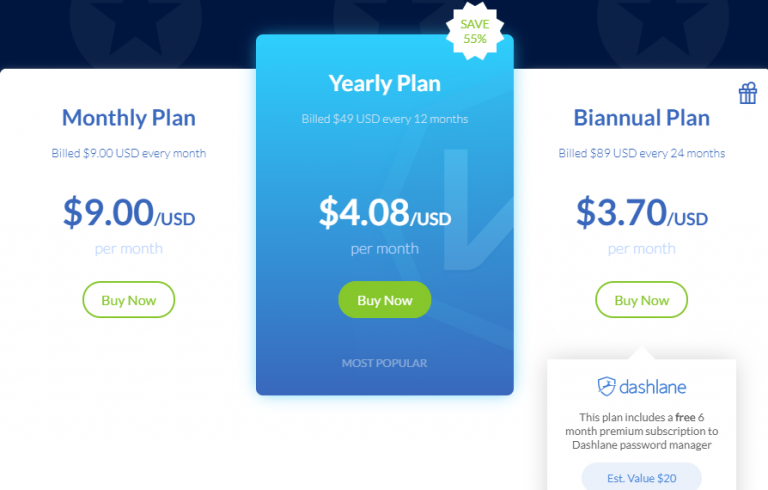
At $9 monthly, Windscribe Professional sounds costly, however in the event you join its $49 annual plan, the month-to-month value drops to $4.08. That is just a bit bit greater than Non-public Web Entry’ (PIA) $3.33 monthly.
5. IPVanish VPN – 8/10
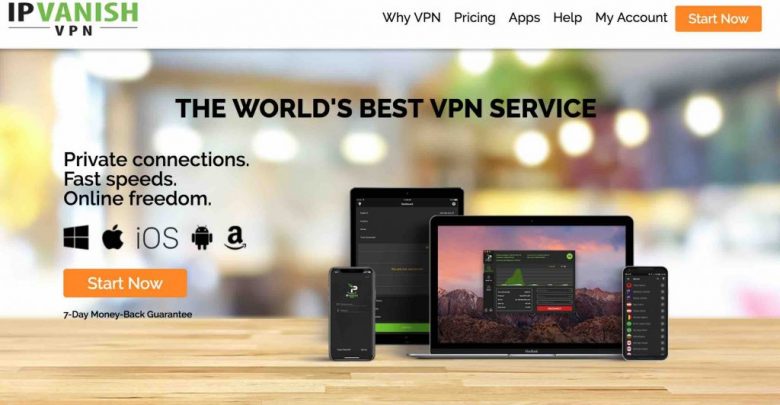
IPVanish delivers pace, strong safety mechanisms and unlocks your on-line freedom. As a result of this, it has gained recognition and been ranked among-st respected VPNs. It has over 1,000 VPN servers in 60 plus international locations worldwide. These servers supply limitless bandwidth and limitless server switching. It’s additionally one of many few VPNs that provide 10 simultaneous connections on a number of gadgets by way of a single account. Its suitable with main computing and cell platforms corresponding to Home windows, MacOS, Linux, iOS, Android, Chromebook, Amazon TV and networking gadgets corresponding to routers.
Pricing and Plans
IPVanish has three subscription plans with a 7-day money-back assure in case you don’t like their service. Beneath are the plans:
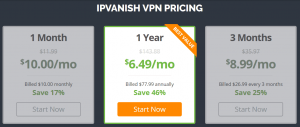
Why Do I Need IPVanish?

IPVanish provides a secure environment for everyday web use. Once you establish a VPN connection all of your online data (emails, instant messages, data transfers, online banking) pass through our encrypted tunnel.
How to choose the fastest VPN server
You can choose the fastest VPN from any VPN provider based on the following criteria:
- Proximity: Choosing a server close to your own location will result in a speedier connection. If you’re in Asia and want to access American content, then choose a server on the west coast USA. If you’re in Europe, then use an East Coast server. If you know the location of the server hosting the content you’re trying to access, you can also choose a VPN server near there.
- Latency: This is closely tied to proximity, but is also affected by the amount of traffic on the networks between you and the VPN server. Latency measures the time it takes to send and receive a request from a server, also called ping time. Many VPN apps will allow you to see which server offer the least latency, usually measured in milliseconds. If not, you can connect to the server and use a terminal or command prompt to ping a website and view the time.
- Server load: A few VPNs, such as IPVanish and NordVPN, allow you to see the current load of VPN servers as a percentage of their total capacity. A higher server load means more traffic and slower connections.
- VPN protocol: We always recommend users avail of OpenVPN when available, as it is the most secure and open-source protocol available. You may, however, opt for a speedier protocol. IKEv2 is secure and works well especially with mobile data connections. You might or might not notice a difference with L2TP/IPSec or SSTP, depending on your device hardware. PPTP is generally regarded as the fastest, but has known security flaws that make it unsuitable for anyone who values their privacy.
Choosing the fastest server for gaming
If you’re an online gamer who uses a VPN to access another region’s servers (or because you got IP banned), the most important factor in choosing a VPN is latency. The ping time between the game servers and your computer or console is mostly what determines how much lag you’ll experience. If you want to stay competitive, figure out where the game’s regional servers are hosted and choose the nearest VPN server.
Download rate is also important, but gaming requires less bandwidth than you might think. The first priority should always be reducing latency.
Security versus speed
Adding security to a VPN connection inevitably results in a loss of speed. Using a stronger encryption algorithm, for example, means it takes longer to encrypt data travelling through the VPN and longer to decrypt it once it arrives at its destination. Similarly, more secure VPN protocols tend to be slower than less secure ones. PPTP, despite being the oldest protocol, is still significantly faster than OpenVPN or L2TP/IPSec. However, it also has known security vulnerabilities.
You don’t necessarily need the strongest available security all the time when using a VPN, but there’s a line that shouldn’t be crossed in order to increase speed. We recommend against using PPTP and advise readers to opt for a protocol that uses SSL (OpenVPN) or IPSec encryption (L2TP, IKEv2).
Most VPN providers don’t give you the option, anyway, but don’t disable encryption altogether. Additionally, 128-bit AES is the minimum strength encryption necessary for a VPN to do its job and keep your data safe. It’s effectively un-crackable and is slightly faster than 256-bit AES, which is also common. A handful of VPNs use Blowfish encryption, which tends to be slower than its AES counterpart. We recommend at least 448-bit Blowfish encryption if you go that route.
How much of a speed boost you’ll get out of tweaking encryption and VPN protocols depends on your hardware. More powerful devices will be able to encrypt and decrypt data more quickly.
UDP versus TCP
When using the OpenVPN protocol, many VPN apps will give you the option of using either the TCP or UDP protocol. TCP is the protocol that you normally use to browse the web and download files. UDP is more common for streaming applications such as video, music, and gaming. The difference is in how computers and servers send network packets, the unit of data used to exchange information over the internet.
A common misconception is that UDP is always faster than TCP. While this is often the case, it’s more of a guideline than a rule.
TCP uses error protection and guaranteed delivery to ensure that every data packet is identical to the original and sent in the correct order. If there is an error, the flow of internet traffic is stopped until the previous packets are sent successfully. This is important if you’re downloading a file or loading a web page.
UDP doesn’t have these protections. Collisions, errors, and missing packets are all common, and sometimes packets arrive out of order. The emphasis is on speed, not being perfect. It is preferable to miss a packet than delay all of the other packets following it.
So, if you use your VPN primarily for online gaming, streaming video, or listening to music, then switch to UDP. Otherwise, stick to TCP.

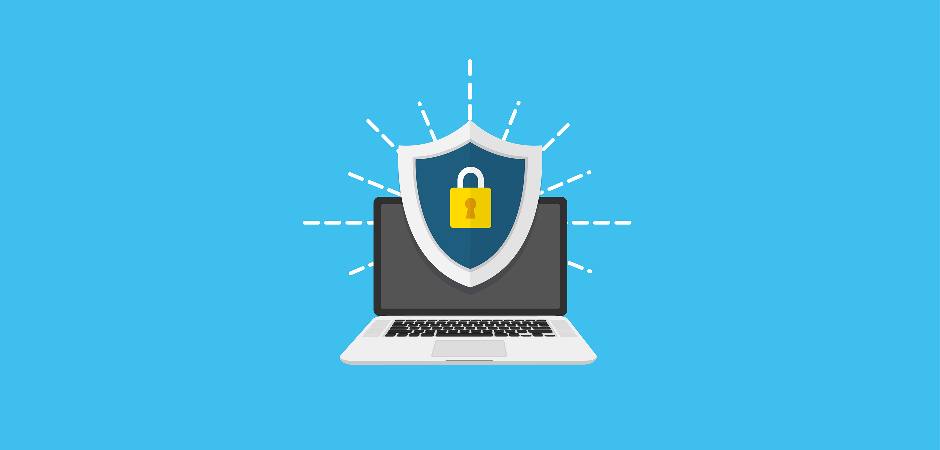
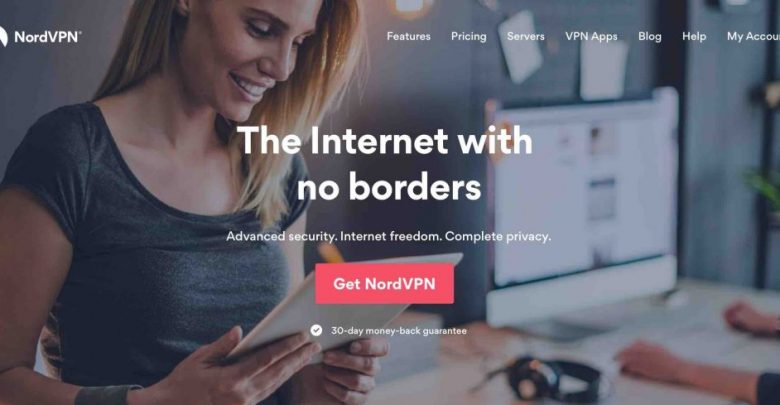


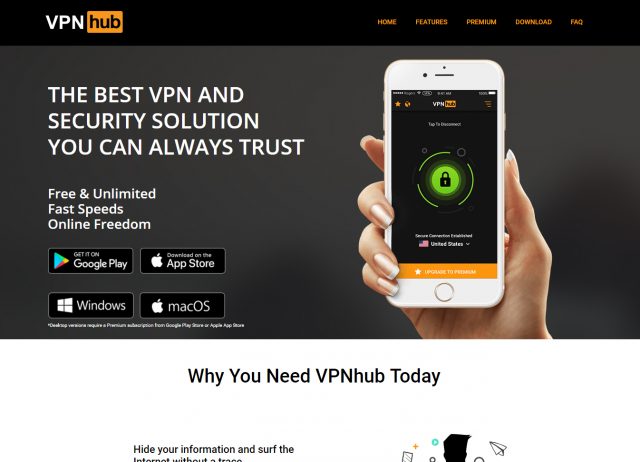

Add Comment